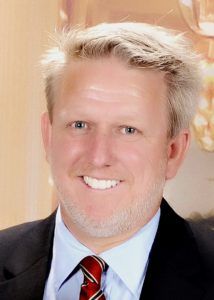DRY GAS SEALS, COUPLINGS, FILTRATION AND INDUSTRY TRENDS

Paul Hosking, Senior Product Manager at John Crane, discusses his company’s turbomachinery related products and services as well as ongoing trends.
Tell us about John Crane.
John Crane provides turbomachinery related technology, supplying products and services for rotating equipment in mission-critical operations. Our portfolio includes dry gas seals and seal-support systems, filtration systems and couplings. We have eight turbomachinery service centers and more than 300 engineers worldwide. In addition to technical support, we provide maintenance and repair services, asset management services and reliability programs.
What do you do with dry gas seals?
Decades of reliable operation have made dry gas seals the standard technology for sealing centrifugal gas compressors. Since the introduction of gas seal technology by John Crane in the mid-1980s, the industry has progressively adopted gas seals as the preferred design standard for new equipment. At this time, it is estimated that 99%+ of new centrifugal compressors are delivered with gas seal technology. Aura, our most advanced range of gas
seals, builds upon experience drawn from a large installed base. The seal range utilizes a common rotor design paired with performance-specific stators delivering robust performance and reduced lifecycle costs. Its unidirectional and bidirectional range will be expanded later this year to include Aura 120NS for compressor applications with small cross section cavities. Development activities are underway to expand Aura
to address the challenges of the high pressure reinjection market and deliver API 692 compliant gas panel solutions.
What trends do you see developing with regards to seals?
Later this year, we should see the introduction of API 692, a standard for Dry Gas Sealing Systems for Axial, Centrifugal, Rotary Screw Compressors and Expanders. It replaces the former Part 4 of API 614, which will no longer exist in its upcoming edition. This reflects progress in gas seal technology in recent years and sets out the minimum
dry gas sealing system requirements to increase reliability and gas seal longevity. API 692 should increase standardization across OEMs and end-users, particularly in the design of gas seal systems, but also in the specification of gas seals to be used. Contaminated seal gas is one of the leading causes of premature failure for dry
gas seals. API 692 places additional emphasis on dry gas seal systems and seal gas conditioning.
How about methane emissions?
Another significant trend is that centrifugal compressors equipped with oil-seal technology are a leading source of methane emissions. As the principal constituent of natural gas, methane is a greenhouse gas. Recent estimates suggest that routine losses from current infrastructure and practices emit natural gas valued at $30 billion annually. Existing fleets contain a mix of compressors with oil seals and gas seals. Depending on region, installed fleets of old compressors will become liable to methane reduction regulations and may be forced to upgrade.
How about trends in couplings?
As smaller turbines with the same power output are produced, couplings with increased power rating, efficiency and reliability have followed. Additionally, constant demands for lower-weight, lower-maintenance designs stimulate further product advances. John Crane H-ME couplings offer low overhung moments and additional shrouding
of flexible elements and bolts. They are suitable for most medium-speed and high-speed compressor drives. Their transmission membranes optimize torque, while minimizing reaction forces due to misalignment.
How about filtration systems?
Seal gas contamination negatively impacts operations, resulting in increased maintenance, reduced production time and unplanned costs. Since seal gas filters are not part of a recycling system, filter performance testing used in liquid filtration (in accordance with ISO 16889) is inadequate since those are based on a multi-pass test procedure. For proper seal gas filter performance testing, ISO 12500 standard Filters for Compressed Air provides a more adequate
test performance, and this will be adopted in the new API 692 industry standard. ISO 12500-1 provides oil aerosols coalescing efficiency performance and pressure drop in compressed gas with a resulting oil carry-over measured in mg/m3. ISO 12500-3 is providing a test standard for filtering particulates from a compressed air flow. Dry gas seals cannot be properly selected unless the characteristics of the gas supplies are known for all operating conditions. Filters must be able to remove particles smaller than the range of operating clearances of seal components. API 692 will require the specification to be 1 μm spherical particle size with 99.9% removal efficiency for seal gas and separation gas for contacting separation seals, and a rating of 10 μm spherical particle size with 99.9% removal efficiency for secondary seal gas and non-contacting separation seals. John Crane filtration systems are designed around the requirements of API 692.
What turbomachinery services do you provide?
John Crane has a global support infrastructure consisting of service centers and test rigs. Customers can witness real-time testing data remotely, thereby speeding delivery and reducing average lead times for returning repaired components. The time from when a part fails to when it is fixed is critical. We strive to increase uptime by maintaining rapid service response. Maintenance services are available on a contract or as-needed basis. By scheduling timed, frequent health care checks, customers can uncover potential problems early on.
How has your service business evolved over recent years?
As rotating equipment has evolved in complexity, the importance of mission-critical applications has created a demand for performance-based service offers. Our asset management programs deliver improved maintenance processes and increase asset efficiency by providing the systems and data needed to reduce maintenance costs
and keep people and equipment safe.